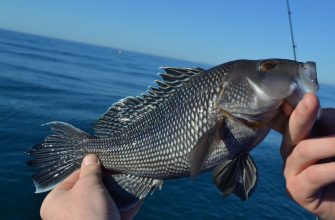- The Majestic Great Lakes and their Fishing Opportunities
- Lake Superior: A Fishing Paradise for Coldwater Species
- Lake Michigan: Diverse Habitats and Abundant Fish Species
- Lake Huron: Exploring its Bays, Islands, and Reefs
- Lake Erie: A Walleye and Smallmouth Bass Hotspot
- Lake Ontario: A Trophy Fish Destination
- Iconic Great Lakes Fish Species: Muskie, Salmon, and More
- Essential Gear for Fishing the Great Lakes:
- Rods, Reels, and Tackle
- Top Fishing Techniques for Success in the Great Lakes
- Navigating Great Lakes Fishing Regulations and Licensing
The Majestic Great Lakes and their Fishing Opportunities
Spanning across more than 94,000 square miles, the Great Lakes offer some of the most diverse and exciting fishing opportunities in North America. From trophy-sized muskie to delicious walleye and feisty smallmouth bass, anglers can find an impressive variety of fish species lurking beneath the waters of these freshwater giants. This comprehensive guide will delve into the unique fishing spots and techniques that make the Great Lakes such an angler’s paradise.
Lake Superior: A Fishing Paradise for Coldwater Species
The largest and deepest of the Great Lakes, Lake Superior, is known for its crystal-clear waters and coldwater species like lake trout, salmon, and steelhead. One of the best spots to fish is the Apostle Islands area in Wisconsin, where anglers can target lake trout around underwater structures and drop-offs. For salmon, try trolling with downriggers and spoons near the Keweenaw Peninsula in Michigan. Don’t forget to bring a reliable fish finder and medium-heavy action rods, as well as fluorocarbon leaders for stealthy presentations.
Lake Michigan: Diverse Habitats and Abundant Fish Species
Lake Michigan’s diverse habitats make it an angler’s dream, offering everything from deep-water trolling for salmon and trout to shoreline casting for smallmouth bass and perch. One of the top spots on the lake is the Sturgeon Bay area in Wisconsin, known for its world-class smallmouth bass fishing. Use tube jigs or soft plastic crawfish imitations around rocky shorelines to entice these feisty fighters. For salmon and trout, try trolling with spoons, flashers, and flies off the shores of Illinois and Michigan.
![]()
Lake Huron: Exploring its Bays, Islands, and Reefs
With its numerous bays, islands, and reefs, Lake Huron provides a wide range of fishing opportunities. One of the most popular locations is Saginaw Bay in Michigan, where walleye abound. Trolling with crawler harnesses, crankbaits, or bottom bouncers is a proven technique for success. For salmon and steelhead, the North Channel and Georgian Bay areas in Ontario offer excellent opportunities. Use spoons, cut bait, or flasher-fly combos when trolling to catch these powerful fish.
Lake Erie: A Walleye and Smallmouth Bass Hotspot
Lake Erie is renowned for its exceptional walleye and smallmouth bass fishing. The Western Basin, near Ohio and Michigan, is a prime location for walleye. Trolling with deep-diving crankbaits or spinner rigs baited with nightcrawlers is a surefire way to catch these tasty fish. For smallmouth bass, the rocky reefs around Presque Isle Bay in Pennsylvania offer prime habitat. Use drop shot rigs with soft plastic baits or tube jigs to entice these hard-fighting fish.
Lake Ontario: A Trophy Fish Destination
Lake Ontario is known for its trophy-sized salmon, trout, and walleye. The Oswego and Niagara rivers provide excellent opportunities to target these big fish. Troll with downriggers, flasher-fly combos, or spoons to catch salmon and trout. For walleye, try jigging with soft plastics or trolling with deep-diving crankbaits near underwater structure.
Iconic Great Lakes Fish Species: Muskie, Salmon, and More
The Great Lakes are home to numerous iconic fish species, including muskie, salmon, walleye, and lake trout. To catch these fish, anglers need to employ various techniques and gear, such as trolling with large crankbaits for muskie, using downriggers and spoons for salmon, and jigging with soft plastics or live bait for walleye.
![]()
Essential Gear for Fishing the Great Lakes:
Rods, Reels, and Tackle
The vastness and diversity of the Great Lakes require anglers to be well-equipped with appropriate gear. A versatile medium to heavy action rod and a high-quality spinning or baitcasting reel are essential for handling the variety of fish species found in these waters. In terms of tackle, be prepared with a selection of lures such as spoons, crankbaits, jigs, and soft plastics, as well as live bait options like nightcrawlers and minnows. Don’t forget the importance of terminal tackle, including fluorocarbon leaders, swivels, and sinkers to adapt to different fishing situations.
Top Fishing Techniques for Success in the Great Lakes
Successful fishing in the Great Lakes often involves a mix of techniques tailored to the specific species you’re targeting. Trolling with downriggers, planer boards, or lead core line is a popular method for covering vast areas of water and locating fish. Jigging with soft plastics or live bait is highly effective for species like walleye and smallmouth bass, while casting with topwater lures or jerkbaits can entice aggressive strikes from muskie and pike.
Navigating Great Lakes Fishing Regulations and Licensing
Fishing regulations and licensing requirements in the Great Lakes vary depending on the specific lake and state or province you’re fishing in. Be sure to research the local regulations, bag limits, and size limits for your target species, as well as obtaining the necessary fishing licenses before hitting the water. This not only ensures a responsible and sustainable fishing experience but also keeps you in compliance with local laws and helps to preserve these incredible fisheries for future generations.
In conclusion, the Great Lakes offer a vast array of fishing opportunities for anglers of all skill levels. With proper preparation, gear, and knowledge of local regulations, you can embark on a memorable fishing adventure and potentially land the trophy fish of a lifetime. So, gear up, study the techniques, and get ready to explore the majestic waters of North America’s Great Lakes.
